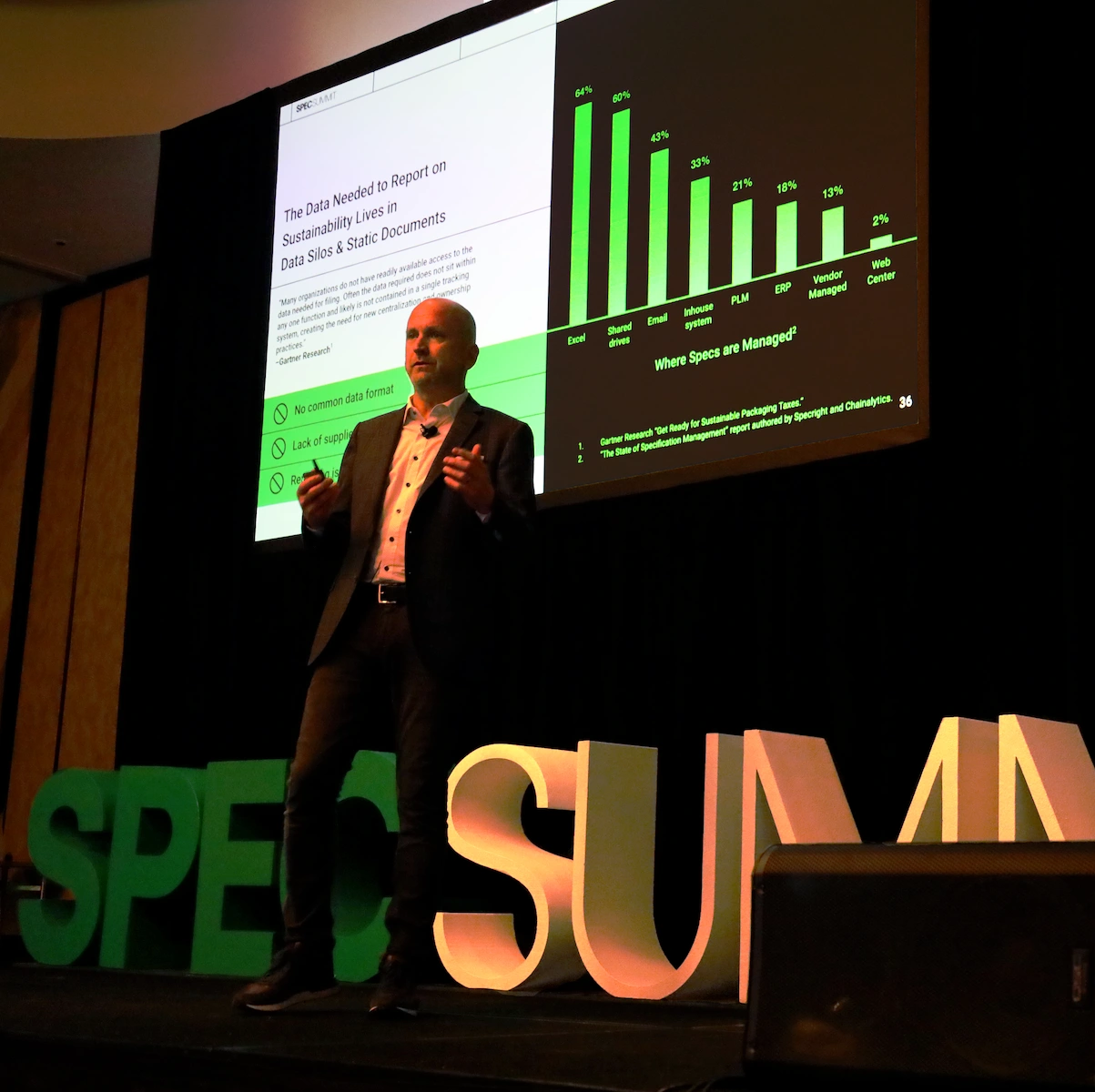As I reflect on last week’s Specification Management Summit in Nashville, I am in awe at the incredible turnout of 250 attendees and the insightful conversations we had around product and packaging sustainability, navigating economic uncertainty and building supply chain resiliency.
Here are some of the key takeaways I urge you all to think about as you’re planning for the year ahead:
The Role of Data in Navigating Uncertain Times
As discussed in my keynote on the first day, there is an urgency to better manage data amid industry disruptions, economic challenges and evolving sustainability regulations. Through all of this, data continues to be the driving force in navigating changing conditions. To ensure better supply chain resiliency in the future, companies must be willing to digitize and share their packaging and supply chain data that will ultimately inform a single source of specification data so that all companies can better visualize, optimize and achieve business success.
The Time for Sustainability is Now
Sustainability discussions were had throughout the duration of the event, whether in relation to a company’s commitments or how to meet industry regulations. We heard from Paul Nowak, Executive Director at GreenBlue, on extended producer responsibility (EPR) legislation, Kevin Davis, Packaging Engineering Director at Dermalogica, on leveraging specification data to improve sustainability reporting and John Blake, Senior Analyst at Gartner, on how to think of sustainability in conjunction with legislation and technology to achieve goals. We also hosted a partner panel of sustainability experts (Prashant Jagtap, CEO at Trayak, Michelle Carvell, COO at Lorax, and Cory Connors, Host of the Sustainable Packaging with Cory Connors Podcast), addressing new regulations, reporting requirements and where businesses need to take action now.
The difficulty with sustainability initiatives is that what’s true in one region, might be different in another region, or what’s considered sustainable today may look very different next year. The truth is though, sustainability doesn’t have to be overwhelming and starts with understanding the DNA-level data of your products and packaging in order to make informed decisions.
The Impact of the Next Generation – From Startups to Academia
Startups can serve a critical role in helping companies of all sizes, even the largest enterprises, achieve digital transformation. We heard from Kange Kaneene, VP, SAP.iO Foundries North and Latin America and Caribbean (SAP’s Startup Accelerator), who spoke to how SAP customers are unlocking additional value through work with Specright. Through a spec-first approach, these companies are able to tie inventory and purchasing data with specs for accelerated product development, sustainability reporting and more.
An incredibly important asset to the future of packaging and supply chain are today’s students. Academia is a significant focus for Specright, so it was great to have Matt Daum, Director and Professor at Michigan State University School of Packaging, speak about how the next generation of packaging leaders are leveraging technology like Specification Data Management to achieve success in their packaging and supply chain careers.
That’s a Wrap!
This year’s event was amazing and we sincerely thank everyone for their thoughtful participation. We can’t wait to welcome everyone back in 2024! And while you wait for next year’s event, stay tuned for details on the Spec Awards, recognizing industry change-makers. More details to come in the week’s ahead!
To watch this year’s presentation recordings and read more about the event, click here.
Explore More Blogs
Get Started
With Specright’s Solution Suite, you can digitize, centralize, and link your specification data to drive efficiencies, intelligence, traceability, and collaboration within your organization and across your supply chain network.




